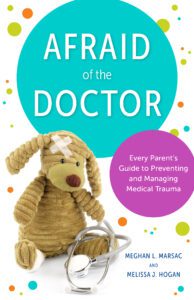When I was a teenager, my mom tried to convince me to become a nurse. As a nurse herself, she told me about the rewards of helping people, the challenges of medicine, and the job opportunities. I politely declined. Blood made me squeamish. So I became a lawyer instead. I wanted 2.5 children, a house in the suburbs, and maybe a dog. I expected to have healthy children. Like many of us, I hoped my life would follow a certain path. But life never goes exactly how we plan it.
Do I wish it had? Not really. And let me tell you why. By the age of thirty-five, I’d had three children in a three-year period—all boys. I had my own business, and I felt like I was only a few lanes off of my original map for my life. But that would all soon change. When my youngest son was two years old, he was diagnosed with a rare genetic condition called Hunter syndrome, or mucopolysaccharidosis type II. It’s a long name for a terrible disease. The average life span is in the teens, after a child has slowly lost their mental and physical abilities. There is no cure. I grieved intensely for about a year, although there was actually little time to grieve.
My son started seeing medical specialists. He had several surgeries. He started a weekly infusion treatment that involved a full day at the hospital each week. Every Wednesday night, I loaded up my car with toys, electronics, a stack of DVDs, and a wheelchair. I looked into the trunk and checked my list; I always seemed to forget something. Preparing for a day at the hospital involved tangible planning, like packing the car and arranging childcare for my two other kids. It also involved emotional planning. I’d often shed a few tears, because despite all the preparation, it never felt normal to take my child to the hospital. My weary heart anticipated that, in all likelihood, the day would involve more than one needle poke, screaming, and a growing sense of loneliness I rarely shared with anyone. Since my son was only two years old, he adapted for a while. Until he didn’t.
I still remember the particular infusion visit where his veins collapsed three times. My son lost it. Kicking and screaming, it took an entire medical team to finish the infusion and get through the day. That one disastrous visit turned into two. Two turned into three. Appointments became all about how to manage his extreme feelings and reactions to everything the medical team was trying to do—things that needed to be done in order to treat his condition, things like IVs, anesthesia masks, needle pokes for infusions and blood draws, even blood pressure checks. He refused to let people lift his shirt anymore for regular exams. He kicked and screamed as if he was being tortured. Using the anesthesia mask required five people to hold him down. Weekly needle sticks in his port-a-cath for infusions of his life-sustaining medication required someone to hold his arms and legs. I was exhausted. And I was heartbroken because I wasn’t sure what to do. I didn’t know what had happened to my son. He seemed so . . .traumatized.
At first, I didn’t even know what to call what was happening. A friend mentioned the phrase medical trauma, and after some research, it felt so familiar. I scoured the Internet for more about what was going on with my son. I searched for and called experts. Could anyone help him? Unfortunately for us, there was no one in our area who worked with cognitively impaired children, so I was on my own, with help from child life services at our local hospital. There was no child psychologist on staff. I searched for a book to help me but couldn’t find one. So I took notes. Managing my son’s medical trauma became a part-time job, along with all the medical appointments he had. We accumulated lots of practice medical supplies (check out chapter 19 on desensitization and chapter 20 on medical play).We labeled all his procedures and appointments with short words or phrases he could understand (see chapter 15 on communication). He was given choices. Always.

The appointments still come and go. The surgeries, the infusions, the therapies, they’re still with us. But now we face them from a place of knowledge and experience. We also look forward to the joyful moments, putting medical challenges in the context of our entire lives. After reading this book, I hope you can too.
This book was written for parents of children with rare diseases but also those parents whose children just have a fear of shots or doctor’s offices. You can read more at afraidofthedoctor.com






